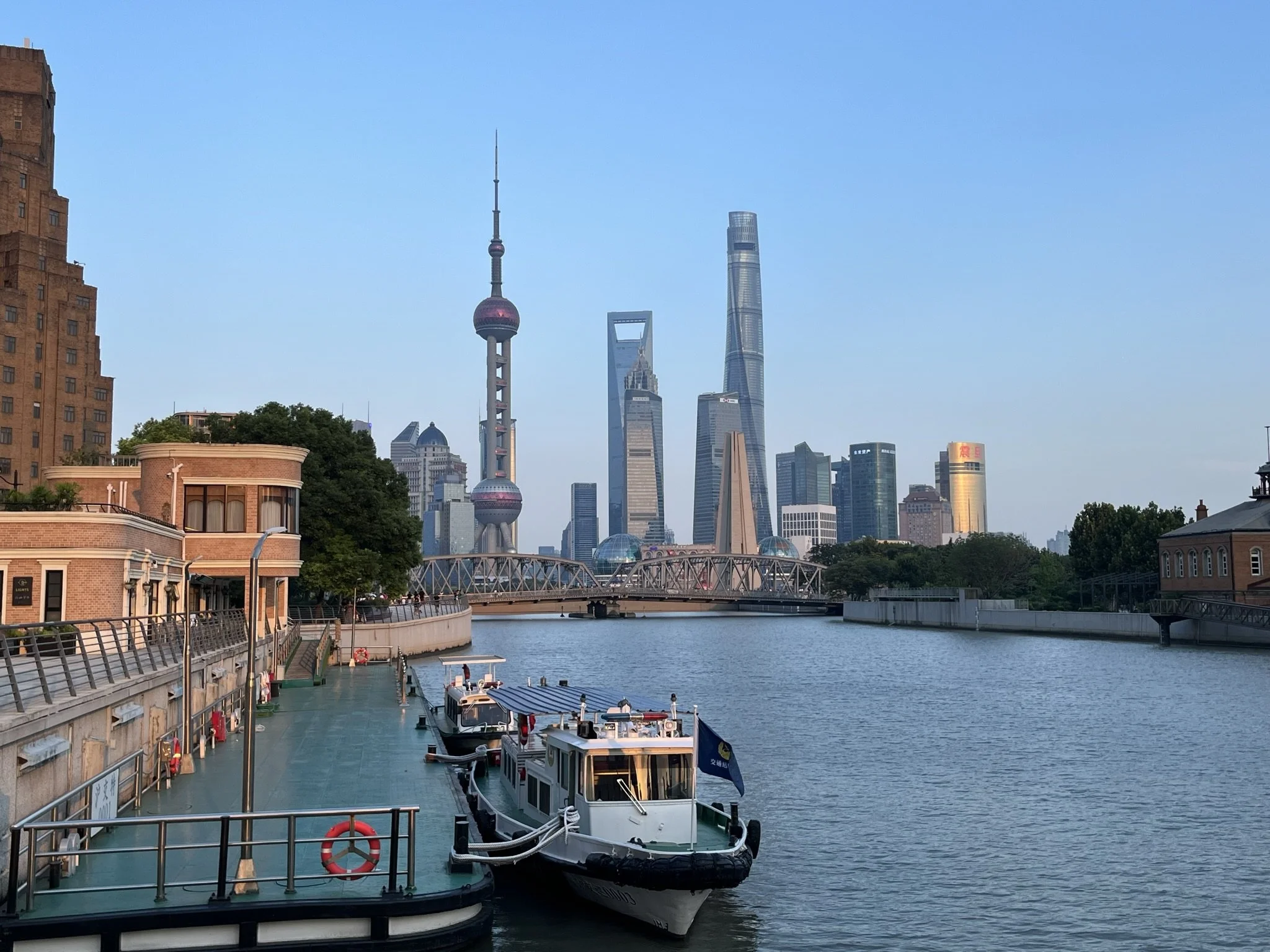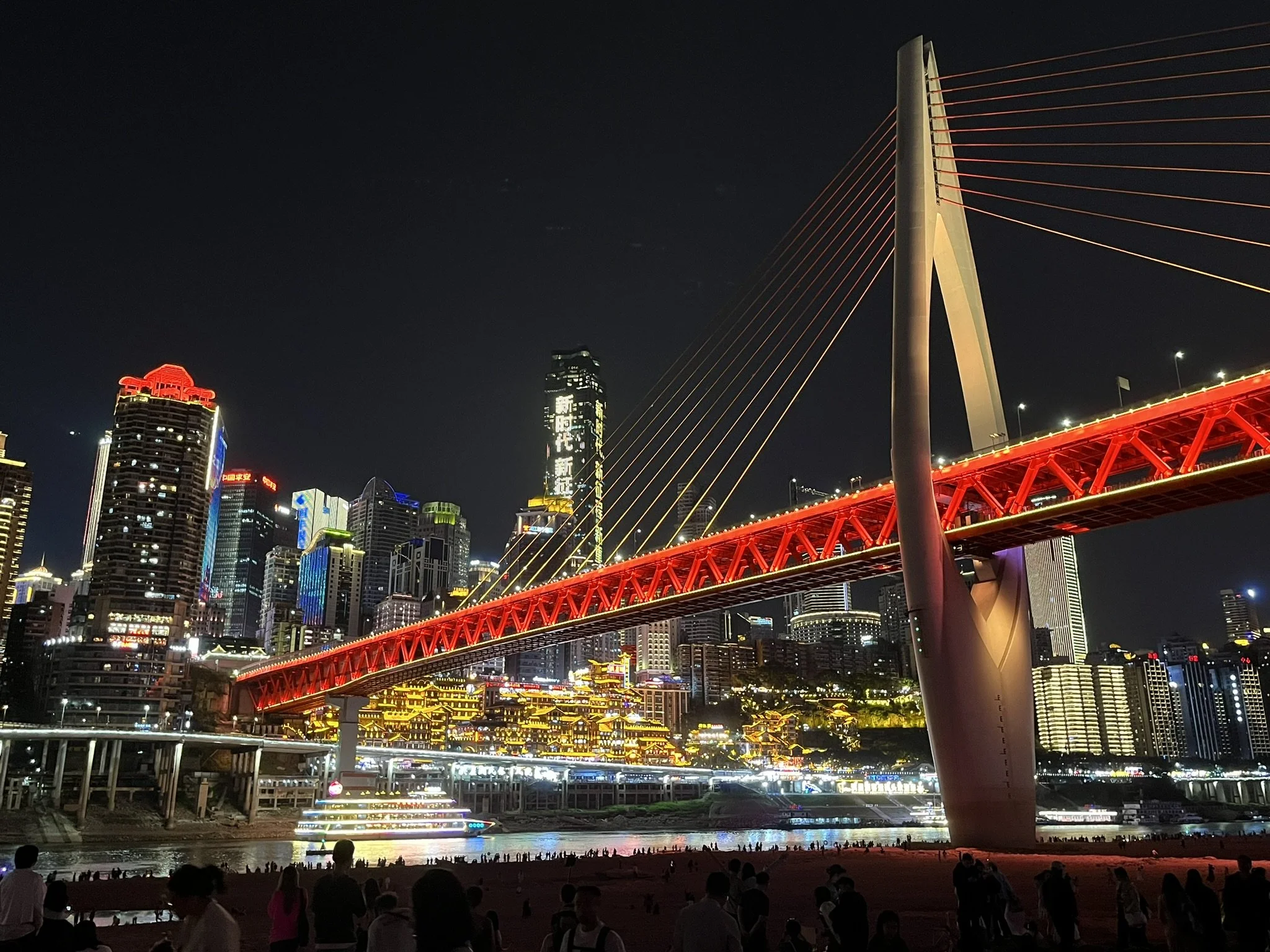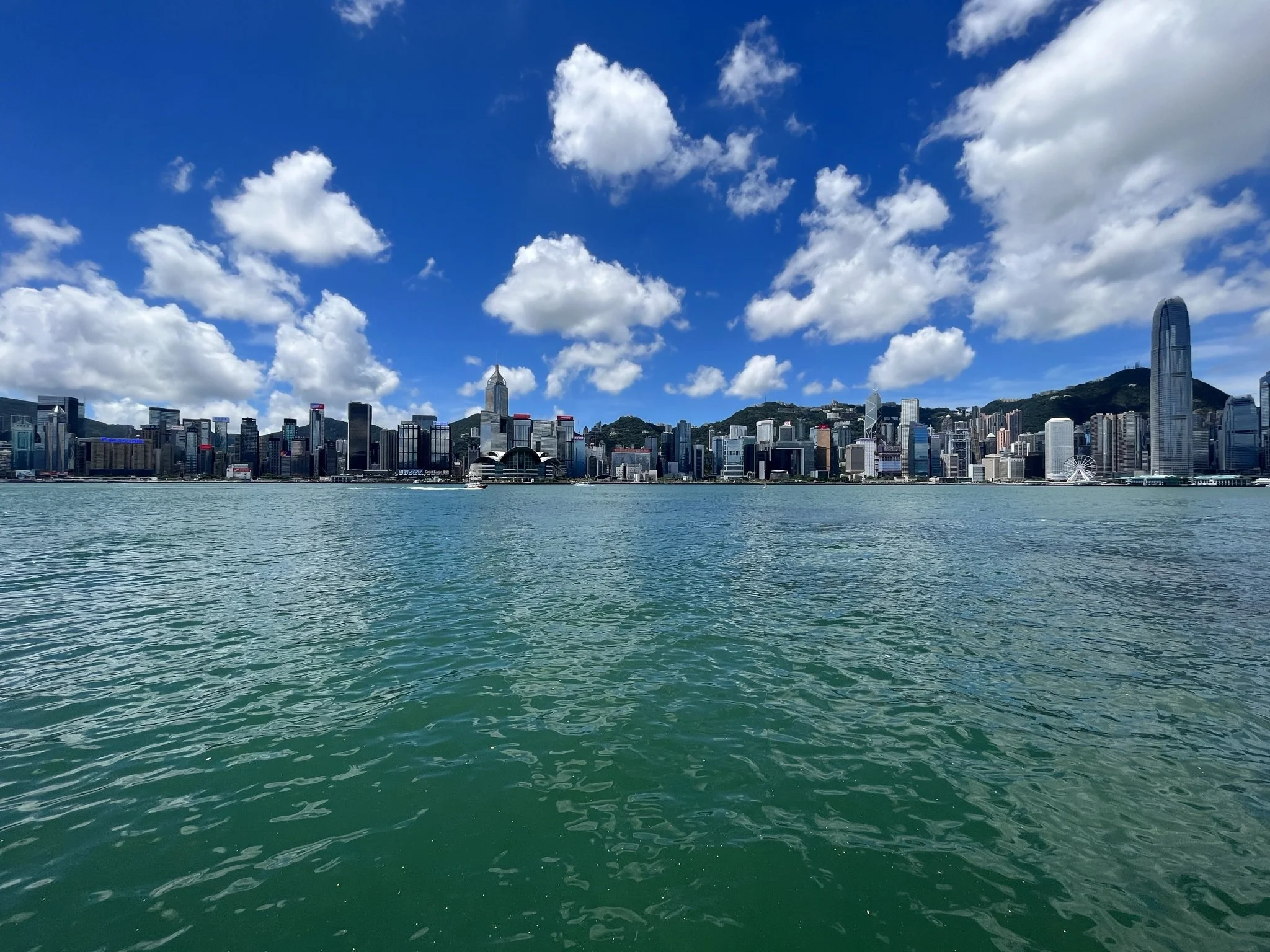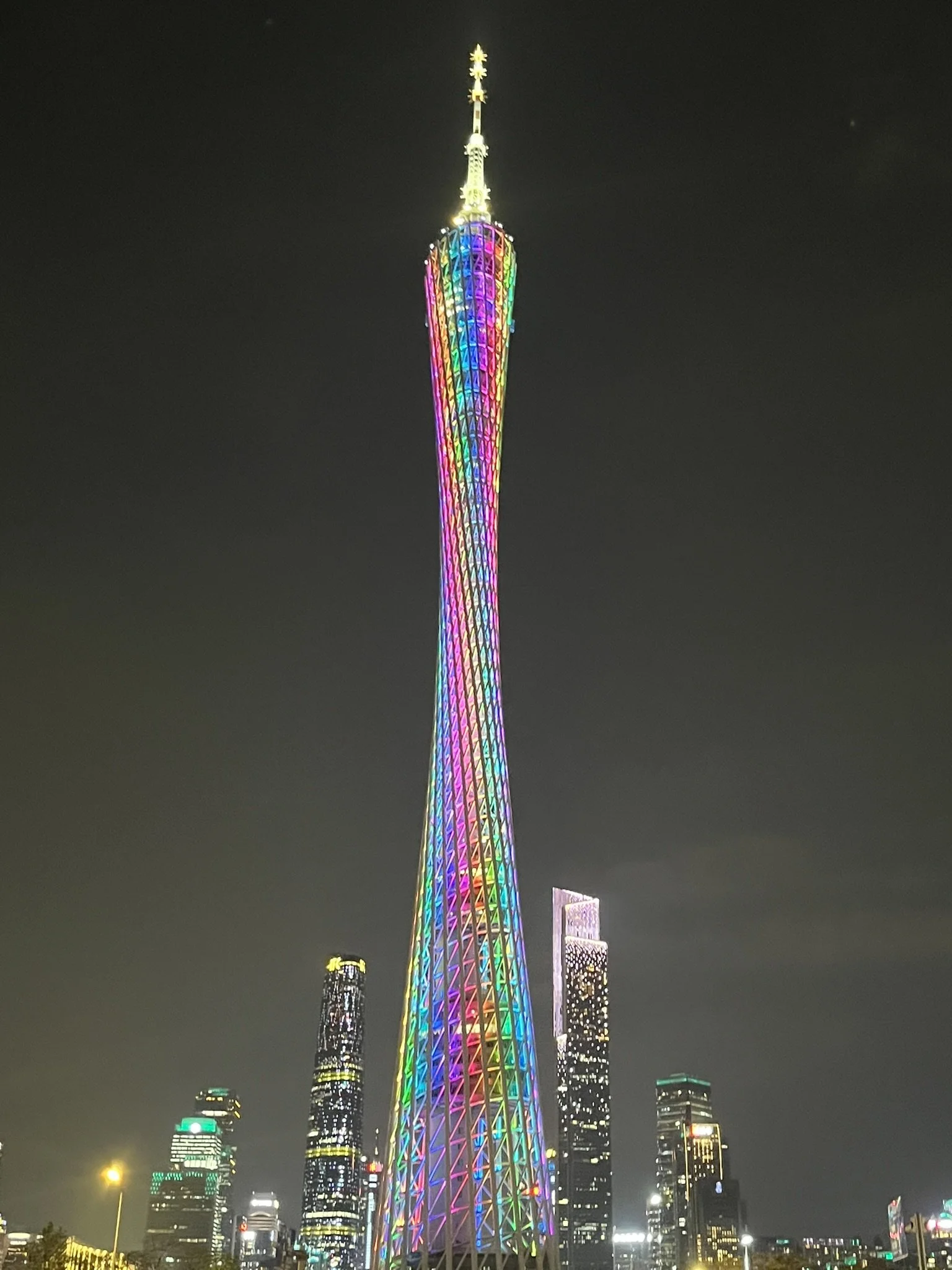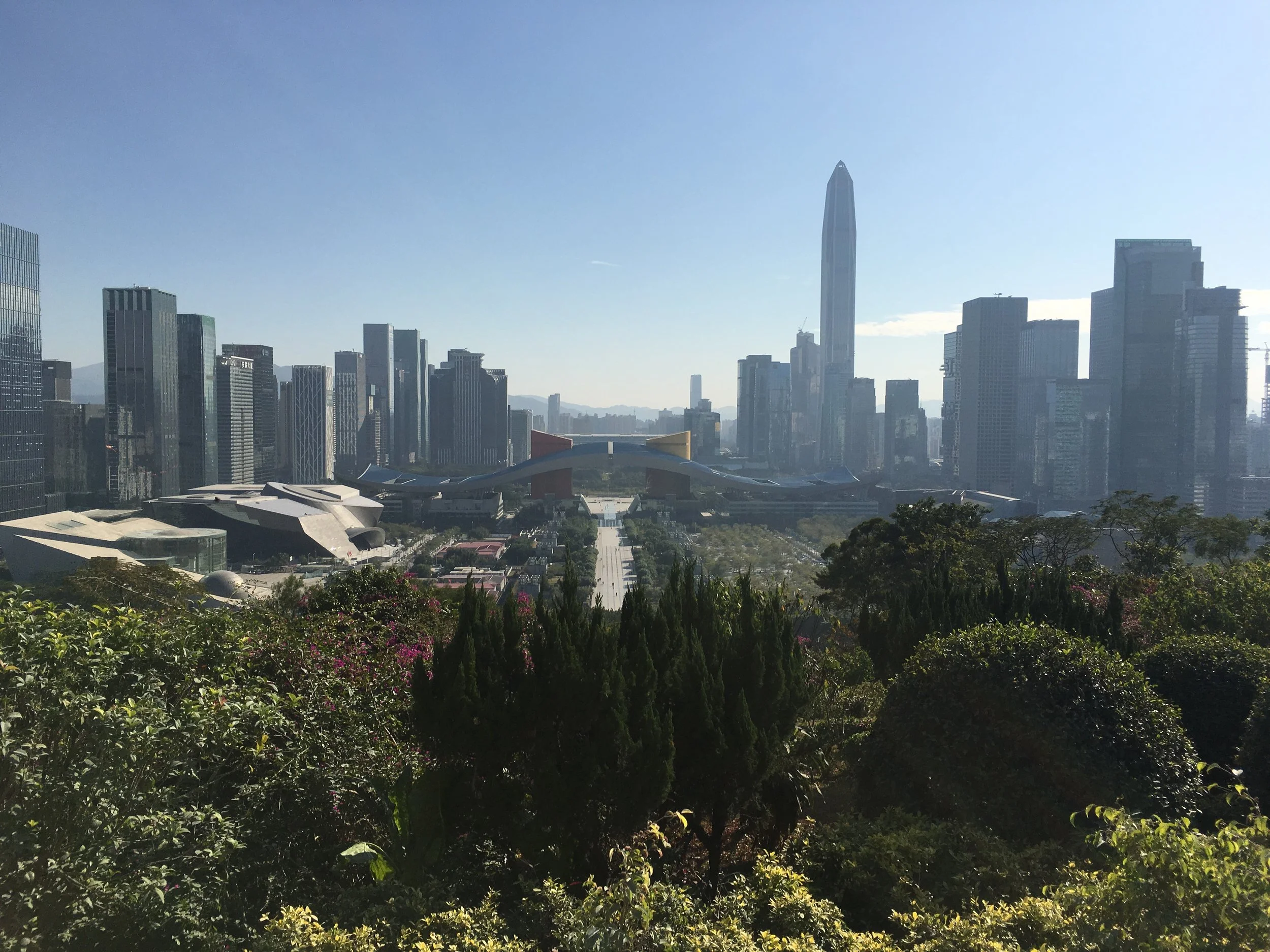5 Skylines You Must See in China: A Full Guide (2026)
YenKid: As someone who has designed city infrastructure for a living, I am naturally a big fan of skylines.
China is the definitely the place to visit if you are interested in modern architecture. It is hard not to get blown away by the sheer scale and variety.
The skylines give totally different vibes for me during the daytime and nighttime - if you only have time for one, pick the nighttime.
So, here is a full guide containing a list of landmarks, the best observation decks and best vantage points for my top 5 skylines:
(Note: all pics were taken by me)
Shanghai skyline
Intro:
Shanghai is nicknamed “Magic City”. This reflected in its iconic 4 piece skyline on the Pudong peninsula.
Before the Pudong skyline turned into reality, the area was actually mainly farmland. If you search for “Pudong in 1990”, you’ll see the famous comparison, which went viral through the Internet. This is one of the classic examples of China’s rapid development in just 2-3 decades.
What’s unique:
As of 2025, there is no other quadruple cluster bundled so close together like this anywhere else in China. I think one of the most striking things is the distinct geometric designs for each structure. This definitely makes one of the most memorable skylines for me.
It’s a tough call, but I personally think the Oriental Pearl Tower makes the biggest impact on the skyline, thanks to its unique geometry and colours. Also, the contrast between the Bund on one side of the river and the Pudong skyline makes it a spectacular sight you can’t miss.
The other supertalls are scattered further away in different districts, with the most recognisable one being Shimao International Plaza.
However, in a few years, the North Bund Tower on the opposite side of the river will become the city’s 4th tallest structure in 2030.
The Pudong skyline might give the false impression that the city’s density is comparable to Hong Kong, but Hong Kong has far more skyscrapers. Shanghai is not actually a particularly tall city by Chinese standards, by some measures it’s not even in the top 3.
Take a look at my Shanghai Ultimate Travel Guide + start looking at flights here.
Prominent landmarks
Oriental Pearl Tower, 东方之珠 ➡️ 5th tallest TV tower in the world in 2025
Shanghai Tower, 上海中心 ➡️ 3rd tallest in the world in 2025
Shanghai World Financial Center (Shanghai WFC), 上海国际金融中心
Jin Mao Tower, 金茂大厦
The Bund (Waitan), 外滩
Shimao International Plaza, 上海世茂国际广场
Main observation decks
Shanghai Tower
Oriental Pearl Tower
Shanghai WFC
Jin Mao Tower
My favourite vantage points
Looking towards the Pudong skyline at Zhapulu Bridge over the Wusong River
The Bund promenade along the Huangpu River
Looking over the city from the Shanghai Tower observation deck
The elevated pedestrian circular walkway in the centre of Pudong where you are sandwiched between Oriental Pearl Tower and the 3 skyscrapers
Chongqing skyline
Intro:
Chongqing seems to be a lot of people’s radars these days (even my Chinese friends). If you asked people 5 years ago the go-to cities for skylines and night lights, Chongqing would not have been on many people’s lists.
I must admit it wasn’t really on my radar either before 2019. The city has really exploded into prominence, mainly due to its absolutely stunning visuals and crazy vertical construction.
What’s unique:
Known to Chinese people as the mountain city and the foggy city, the centrepiece is the Hongya Cave illuminated at night. Together with the steep rising mountain backdrop, the Jialing River, and the red hot Qiansimen Bridge, it really is the one of the most dramatic night-time skylines for me.
It’s the only city on this list with a major bridge forming a core part of its skyline. Some of the buildings sit higher up on the mountain, making them appear even taller than they actually are. The new tallest building, International Land-Sea, has only made it even better.
I must say that if I had to pick the one city that absolutely took my breath away with its night lights, it would have to be Chongqing.
I love the mind-blowing layers and layers of the city, and never knowing whether the building you meant to visit is above or below you. Videos don’t do it justice, you have to experience it for yourself. Getting lost is part of the fun.
Take a look at my Chongqing Ultimate Travel Guide + start looking at flights here.
Prominent landmarks
Hongya Cave, 洪崖洞
Qiansimen Bridge + Dongshuimen Bridge, 千厮门大桥 + 东水门大桥
Raffles City, 来福士广场
International Land-Sea Center, 陆海国际中心
Chongqing World Financial Center (WFC), 环球金融中心
Jialing River and Yangtze River, 嘉陵江 + 长江
Kuixinglou Building, 魁星楼
Hong’en Temple Pagoda, 鸿恩寺
Chongqing People’s Auditorium, 人民大礼堂
There are so many incredible buildings and bridges worth seeing, but unfortunately I can’t list them all here, otherwise this will just turn into a Chongqing article. I will have a Chongqing travel guide covering all the details.
Main observation decks
Chongqing WFC
Plenty of open air spaces and platforms to view Chongqing from above
My favourite vantage points
On the Jialing River Stone Beach, north-side of the river (the most iconic shot in my opinion)
Walking along Qiansimen Bridge
Northern end of Qiansimen Bridge around the corner
The western approach to Hongyadong at street level
Top of Longmenhao Old Street next to Dongshuimen Bridge
Hong Kong skyline
Intro:
I would say Hong Kong’s skyline is by far the most famous out of all the cities in China. Most people who have watched a Hong Kong or Hollywood movie (e.g. The Dark Knight) will recognise it.
The bulk of the supertalls are bundled along the length of Hong Kong Island, but the ICC is actually on the Kowloon Peninsula (the opposite site) and is often not seen on the classic photo shot.
What’s unique:
I can’t think of any other city that has such a perfect combination of water, skyscrapers, and mountains in one camera shot. There are just so many vantage points to view the city - from the promenades, from the Star Ferry across the harbour, from sea level, from the Peak Tram, from Victoria Peak. The skyscrapers lined along the northern shore of Hong Kong Island are almost endless.
Hong Kong has over 500 buildings above 150m high, the most in the world. It might not have the tallest buildings in the world, but the sheer volume of skyscrapers is still absolutely staggering to me. For context, New York only has 300 or so skyscrapers and Dubai under 300.
Something that most people don’t know is that 75% of Hong Kong is actually mountains and green spaces. That’s why the city had no choice, but to build high in most places. So, essentially, over 7 million on less than 300 square kilometres.
Take a look at my Hong Kong Ultimate Travel Guide by a local + start looking at flights here.
Prominent landmarks
Victoria Harbour, 維多利亞港
Hong Kong Convention and Exhibition Centre, 香港會展中心
International Finance Centre (IFC), 國際金融中心
International Commerce Centre (ICC), 環球貿易廣場 (the only one on Kowloon side)
Central Plaza, 中環廣場
Bank of China Tower, 中銀大廈
The Center, 中環中心
Victoria Peak, 太平山
Main observation decks
The Peak
International Commerce Centre
International Finance Centre
My favourite vantage points
Looking across the harbour from Tsim Sha Tsui promenade
Looking west towards IFC from Wan Chai Tamar Park promenade
Looking at Hong Kong Island from West Kowloon promenade
The Peak Tram climbing up to Victoria Peak
The upper floors of The Peak Tower
Guangzhou skyline
Intro:
I get the impression that Guangzhou is mainly known for its food rather its skyscrapers. Sure, it is definitely one of the food capitals of China.
This is the birthplace of Cantonese cuisine, which I’m guessing you’ve either had in your country or heard of. It may be a little bit extreme, but if you ask me, people who love Chinese food should come here for the food alone.
In terms of skyscrapers, you may or may not be surprised to hear that Guangzhou has the biggest supertall cluster in all of China. I mean cluster, not the most supertalls in the entire city (that would be Shenzhen). This cluster is centred around Zhujiang New Town directly opposite Canton Tower across the river.
What’s unique:
The first thing that pops into people’s minds is Canton Tower (otherwise nicknamed “Slim Waist”). There’s definitely nothing else like it in China (that I’ve seen). The West and East Towers, located opposite the river, are also featured prominently on skyline photos.
What is less known is the cluster of skyscrapers around Huacheng Plaza in Zhujiang New Town (the north side of the Pearl River). There are an additional 5 supertalls here. Further north, you have CITIC Plaza, the 3rd tallest in the city.
All of these buildings have been strategically located to form a north-south central axis around a large open space. So basically, you can see 9 supertall structures in the same shot if you get the right angle. I find the arrangement very pleasing to the eyes.
More recently, a second cluster of skyscrapers including Guangdong Business Center have emerged in Pazhou CBD on the south side of the river.
Take a look at my Guangzhou Ultimate Travel Guide + start looking at flights here.
Prominent landmarks
Canton Tower, 广州塔 ➡️ 2nd tallest TV tower in the world in 2025
Guangzhou Chow Tai Fook Finance Centre (also known as East Tower), 周大福 ➡️ 8th tallest tower in the world in 2025
Guangzhou International Finance Center (IFC) (also known as West Tower), 广州国际金融中心
CITIC Plaza, 中信广场
Zhujiang New Town supertall cluster around Huacheng Plaza, 珠江新城
The Pinnacle, 广晟国际大厦
Global City Square, 环球都会广场
Pearl River Tower, 珠江城大厦
Fortune Center, 越秀金融大厦
Leatop Plaza, 利通广场
Main observation decks
Canton Tower
Guangzhou CTF Centre
Guangzhou IFC
My favourite vantage points
On the Canton Tower Plaza podium looking north with the two towers either side of Canton Tower
At Huacheng Square looking south towards Canton Tower and up at the twin towers
East of Liede Bridge looking west towards Canton Tower and Zhujiang New Town
Top floor of the main pagoda at Guangzhou Cultural Center looking north towards Canton Tower
Behind Xinguang Bridge looking north towards the Zhujiang New Town skyline (I haven’t been to this one yet but I’ve seen amazing photos of this and it’s something I’m looking to get)
Shenzhen skyline
Intro:
Shenzhen is known as the city that rose from small villages to become China’s most famous technology city in just 40 years. If you have a smartphone, chances are some part of it has passed through Shenzhen. Its status as a technology city is reflected in its gleaming new skyscrapers, which is growing massively.
With virtually zero skyscrapers until 1985, it is now home to nearly 500 skyscrapers and the most 200m+ skyscrapers in the world.
Shenzhen now has a massive 18 million population. Together with Hong Kong, Guangzhou, Dongguan, and several other cities, it makes up a big proportion of the 80 million across the gigantic Greater Bay Area.
What’s unique:
The top 5 tallest were all completed after 2010. Ping An IFC is the 5th tallest in the world. Spring Bamboo is iconic.
The funny thing is Shenzhen has multiple major CBDs from east to west with signature supertalls scattered throughout the city, rather than in one concentrated area.
I must say the skyline can be a bit confusing for visitors at first, because there’s not really one single central point. You can take Ping An IFC as the central point, but there’s quite a few supertalls missing in these buildings, because they are located so far away.
So, Shenzhen is a city that does require some planning if you want to take skyline pictures or go on a skyscraper tour.
There’s a ton more supertalls under construction and it looks like Shenzhen will end up with over 30 supertalls by 2028, which is crazy. For reflection, Shenzhen’s tallest building in 1996 was 160m.
This dramatic transformation makes it the one for me to watch. I’m paying particular attention to the Shenzhen Bay Super Headquarters, which is an upcoming CBD.
Take a look at my Shenzhen Ultimate Travel Guide + start looking at flights here.
Prominent landmarks
Ping An IFC, 平安金融中心 ➡️ 5th tallest in the world in 2025
Shun Hing Square, 帝王大厦
KK100, 京基100
Spring Bamboo, 春笋
Tencent Binhai Mansion, 腾讯滨海大厦
DJI Sky City, 天空之城
Vanke Yun City, 云科技大厦 (just because of its cyberpunk lighting at night)
China Merchant Global HQ, 招商银行总部大厦
Citymark Center, 城脉中心
Galaxy World Twin Towers, 星河双子塔
Extras: Gangxia North station, Shenzhen Zhongshan Bridge
Main observation decks
Ping An IFC
Top of Lianhuashan Park (free)
My favourite vantage points
Looking over the city from Ping An IFC observation deck
Platform at top of Lianhuashan Park looking at the Futian and Luohu skyline
Ascending escalator from basement level to street level at One Avenue looking towards Ping An IFC
From the footbridge at Talent Park looking at the Nanshan skyline
👉🏻 Check out my skyscraper tour in my Shenzhen travel guide here
Special mentions to these cities for skylines
Wuhan, Beijing, Tianjin, Nanjing - all unique in their own way. I particularly like Beijing and Nanjing for their combination of old and new.
(I may have missed some, but that’s probably because I haven’t visited them yet)
Relevant articles by me 👇🏻
30 Futuristic Landmarks You Must See In China
20 Engineering Megastructures You Should See In China
20 Natural Wonders You Should See In China
20 Scenic Towns and Villages You Should Visit In China
30 Historical Landmarks You Must See In China
Prepare
How Long Should I Spend In China On My First Trip? Example Itineraries from a Chinese Traveller
Do I Need To Know Chinese For My Trip to China? Or A Tour Guide? A Practical Take
What You Need To Know Before You Arrive In China (2025)
How To
How to Get The Best Deal For Hotels in China?
How to Buy Tickets to Attractions in China?
Your First 24 Hours In China: The Ultimate Step By Step Guide For First Time Visitors (2025)
Things to Know
16 Misconceptions and Mistakes All First Time Visitors to China Must Know!
5 Food and Drink Facts You Should Know Before Travelling in China! (2025)
6 Traffic Rules You Need to Know as a Tourist in China (2025)
